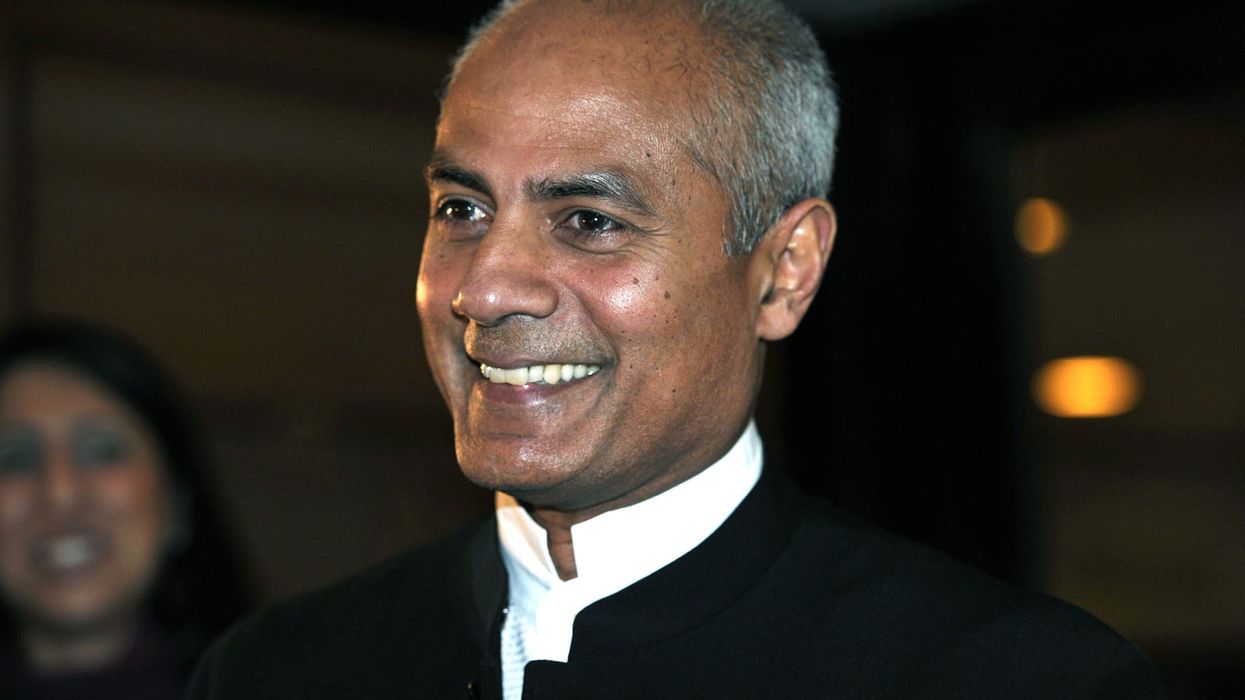The renowned reader of BBC News at Six, George Alagiah has declared that he will be taking time off from presenting after scans discovered that his bowel cancer has spread further.
The 66-year-old newsreader was first diagnosed with stage 4 bowel cancer back in 2014.
He later revealed that the cancer had spread to his liver and lymph nodes as well.
To treat his bowel cancer, George had undergone 17 rounds of chemotherapy.
But unfortunately, in December 2017, his cancer returned and he had to get treated further before returning to work, The Sun informs.
Though the presenter continued to work as much as possible since his diagnosis, in October last year, George announced that he would be stepping back from work.
However, in April this year, he took up his presenting duties again at the News at Six.
But after scans discovered the further spread of his bowel cancer, he again needed to take a break from work.
Speaking about his current condition, he is reported to have said, "A recent scan showed that my cancer has spread further so it’s back to some tough stuff.
"I’m missing my colleagues. Working in the newsroom has been such an important part of keeping energized and motivated."
Experts warn that you could be at greater risk of bowel cancer if you're over 50, have a strong family history of this disease or have a history of polys (non-cancerous growths) in your bowel.
Some of the other high-risk factors include long-term inflammatory bowel disease, for example, Crohn's disease or ulcerative colitis, type 2 diabetes, and an unhealthy lifestyle – smoking, being overweight or obese not getting enough exercise.
Knowing about the symptoms and being aware of the signs of bowel cancer is important.
Also, the NHS advises people not to be embarrassed to go to the doctor for an examination if any changes are noticed.
Additionally, like in the case of all cancers, an early diagnosis of bowel cancer is extremely important for the best chance of survival.
The NHS states, "See a GP if you have any of the symptoms of bowel cancer for three weeks or more."
Here are five red-flag symptoms of bowel cancer:
• Blood in your poo, or bleeding from the back passage
• Change in your normal toilet routine – for example, going more frequently
• Pain or a lump in your abdomen
• Extreme tiredness
• Weight loss
Tumors present in the bowel usually bleed, and this could cause a deficiency of red blood cells, known as anemia which in turn causes tiredness and sometimes breathing difficulties.
Some people could also experience bowel obstruction when the bowel is blocked by bowel cancer.
Some other important signs of bowel cancer:
• Gripes in the tummy
• Bloated feeling
• Constipation and not being able to pass wind
• Being sick
• A need to strain - like doing a number two but after being to the loo
A number of tests are used to diagnose bowel cancer, starting with a simple digital rectal examination.
The NHS informs that though some people may find these tests uncomfortable and embarrassing, this should not come in the way of seeking help immediately, in case any symptoms of bowel cancer are noticed.
Bowel cancer can be treated and can also be cured, particularly if it is diagnosed early. Also, the good news is that each year, the number of people dying from bowel cancer has been falling since the 1970s.
Besides, more than nine out of 10 people with stage 1 bowel cancer survive five years or longer after their diagnosis. However, according to experts, the longer a person has the disease before diagnosis, the lower the rate of survival.




